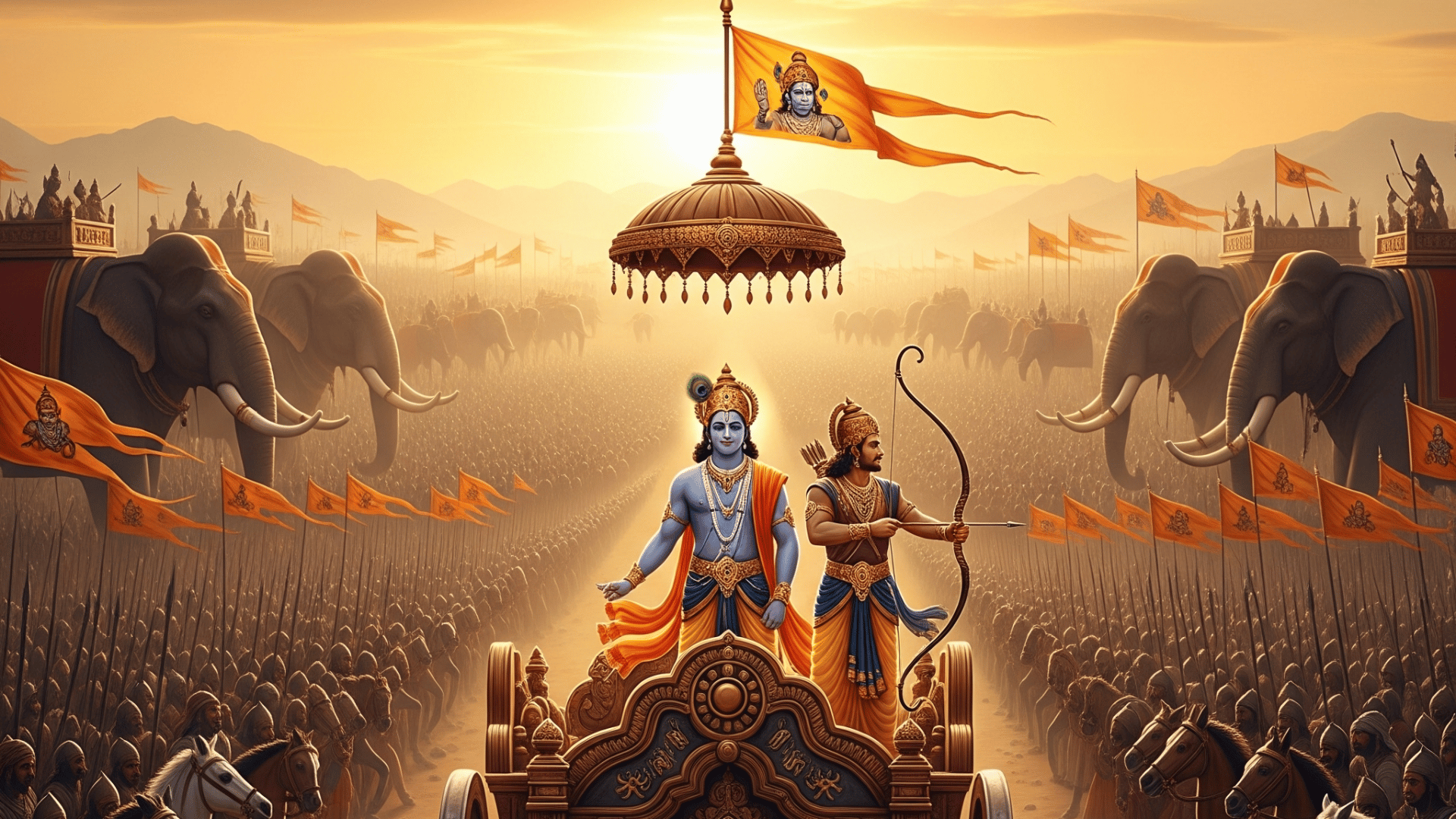
Chapter 1 – Arjuna’s Despondency
Verse 32
Na, kankshe, vijayam’, Krishna, na, ch, raajyam’, sukhaani, ch,
Kim’, naH, raajyen, govind, kim’, bhogaeH, jeeviten, va || 32||
(Arjuna says to Lord Krishna):
“O Krishna, I do not desire victory, nor a kingdom, nor pleasures.
O Govinda, what use is a kingdom to us, or enjoyment, or even life itself?”
Deep Interpretation / Expanded Explanation:
In this verse, Arjuna's heart is overwhelmed with compassion and attachment. On seeing his own relatives standing on the battlefield, he begins to question the very purpose of this war.
He expresses that if winning this battle means killing his own kin, teachers, friends, elders, and sons, then he has no desire for such a victory, kingdom, or happiness.
This verse represents the peak of Arjuna’s emotional crisis and moral dilemma.
It is not just a personal attachment but a profound spiritual and ethical conflict—a war where one must commit an act that feels like adharma (unrighteousness) in the name of dharma (righteousness).
Arjuna questions—what is the point of a kingdom gained by killing loved ones? If the people who bring joy are gone, what value does that joy or life hold?
Key Points:
- Arjuna is distressed by the thought of killing his loved ones.
- He feels that life, pleasure, and rulership are meaningless without them.
- This verse symbolizes Arjuna’s internal spiritual struggle.
- It sets the stage for Lord Krishna’s teachings on karma yoga, self-knowledge, and true dharma.
















